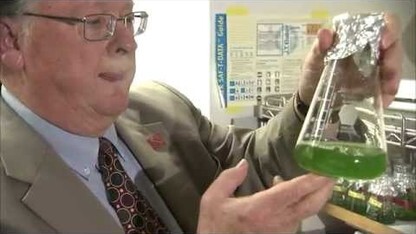
EDITOR’S NOTE — This is the second of four features on UNL faculty who received University of Nebraska systemwide honors. This UNL Today series will continue daily to May 1.
Don Weeks grew up on a small farm in Indiana and remembers taking in the raising of livestock and plants with great interest. It was his freshman botany instructor at Purdue University who whetted that appetite.
“He opened my eyes to things I’d been seeing all my life but not understanding,” Weeks said.
That curiosity led to Weeks’ career as an internationally renowned scientist, the last 25 years of which have been spent at UNL.
Weeks, a professor of biochemistry, received one of the University of Nebraska’s 2014 Outstanding Research and Creative Activity awards, which is given to faculty for outstanding research or creative activity of national or international significance.
Several years ago, Weeks’ research resulted in the major breakthrough of engineering dicamba resistance in crop plants, offering farmers a powerful new weed control option.
In the last few years, Weeks’ research has focused on new technology that holds out hope for fighting diseases that limit crop yields. For example, he and a colleague at Iowa State University are experimenting with splicing a gene into rice that inactivates the gene that causes susceptibility to bacterial blight in rice. Then they can perform a simple genetic cross that gets rid of the gene they used. The result is a plant with the advantages of genetic modification that hasn’t actually been modified. That means it might get to market with much less regulatory red tape and expense.
Weeks believes this genetic sleight of hand will be possible with other food crops and diseases too. It may even have applications in “knocking out” the genes in peanuts that cause allergy; that’s a pending project Weeks has planned with colleagues at the University of Georgia and Virginia Tech University.
With all his experience as a scientist, Weeks hasn’t lost his sense of wonder.
“The older I get, the more I realize how complex life is and how fascinating life is,” Weeks said. “The old saying ‘the more we know, the less we know’ is certainly true.
“The coming years will be a golden age for biological sciences.”
Weeks is particularly proud of his role as a teacher in educating the next generation’s scientists to continue the work in which he has engaged.








